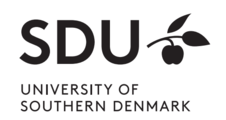MSc in Physics and Technology Engineering

Find the answer to why and how technology works
During your studies you will find the answer to why and how technology works – and you will use that knowledge to develop, for example, optically based faster computers or new optical measurement methods for diagnosing cancer, or ultra-sensitive sensors capable of detecting the presence of just a few molecules of narcotics or explosives.
Since the invention of the laser some fifty years ago, optics and especially nanotechnology have undergone a rapid development and become significant parts of physics, technology and industry as well as of our everyday lives. Just imagine that without the laser, things such as the DVD-player would not have existed and you would not have been able to print on a laser printer.
With a master programme in Physics and Technology you will acquire specialist skills in a broad area, primarily linked to the design and fabrication of nanostructured functional materials as well as the characteristics of light and its interaction with atoms, molecules and matter. Applications that exploit these aspects are the primary focus of this academic profile.
Science of light and color
Optics is not about glasses and contact lenses; it is about the science of light and color. The programme includes theories on how to produce light in for example lasers, the scattering of light in different matters, and theories of how light interacts and exchanges energy with the matter. Laser light interacting with a nanostructured noble metal is confined to the metal surface; something which will enable you to use nanometre thin gold wires to guide light.
You build on your already strong foundation in physics, technology and mathematics. This provides you with a deeper knowledge of especially advanced optics, quantum physics, material physics and molecule physics, nanophysics and the fabrication of nanostructures. These subjects enable you to work interdisciplinary in this rapidly changing high-tech world with challenges in academic frontier areas.
In addition, you will acquire expertise in measuring and analyzing signals – with special focus on, for example, highly sensitive sensors combined with intelligent data analysis.
In your master thesis project you can work in one of the university's exciting research areas related to the academic profile.
This could for example be nanooptics, where you utilize the fact that light can be intensified millions of times when it interacts with tiny gold particles. By optimizing this process it is possible to create highly sensitive single-molecule sensors which can detect, for example, pesticides on the surface of vegetables or fruits.
Project-based and research-based study environment
You become part of a project based and problem based study environment where you work in project groups. You and your fellow students are responsible for planning and carrying out the project – and for meeting the deadlines. Usually we receive the project outlines from companies and we emphasise that the problems you solve are ‘real world’ problems.
Į magistro studijų programas gali stoti visi, baigę universitetą arba besimokantys paskutiniame kurse. Studijos kurias baigei ar tebesimokai turi būti panašios krypties kaip ir tos, į kurias nori stoti, kadangi priėmimas yra paremtas ECTS kreditų suderinamumu.
- ECTS kreditų išrašas - jei dar nesi baigęs aukštosios mokyklos, būtina prisegti ECTS kreditų išrašą, kuriame būtų matyti, kokius dalykus tu mokeisi bei kokius pažymius ir kiek kreditų už juos gavai. Kai siunti anketą paskutiniame kurse, diplomą reikia prisegti vėliau, kai tik jį gausi.
- Bakalauro diplomas – jei jau esi baigęs aukštąją mokyklą, išrašo nereikia, užtenka prie anketos prisegti savo Bakalauro diplomą.
TOEFL iBT or iBT Home Edition - minimalus balas 83(nemažiau, kaip 20 iš kiekvienos dalies). Testo rezultatas universitetą turi pasiekti tiesiogiai iš testo laikymo centro. Užsakant testo rezultato išsiuntimą iš centro naudoti University of Southern Denmark kodą 7969. Rinkitės "other - department not listed". Jeigujau esi laikęs testą, vis vien gali užsakyti rezultato siuntimą iš testo laikymo centro (tai padaryti būtina). Kai tai padarysi, apie tai reikia informuoti mus.
IELTS - minimalus balas 6.5 (nemažiau, kaip 6.5 iš kiekvienos dalies).
Testo sertifikatą BŪTINA pateikti iki stojimo pabaigos datos.
You can apply if you hold a similar, relevant degree in Science or Engineering. To be considered, your degree must include a minimum of:
- 25 ECTS within mathematics (Mathematics, Statistics)
- 40 ECTS within engineering physics (Mechanics, Electronics, Electromagnetism, Quantum Mechanics, Optics)
As part of your application, you must fill in and upload a form in which you state which subjects from your education you consider relevant in relation to the requirements mentioned above. You must upload the form to the application portal when you submit your application. Download the form here (.pdf).
As a student in Engineering at SDU Sønderborg, you are guaranteed your first job when you finish your MSc studies. You can find more information here.
With a master degree in Physics and Technology you are qualified for work in:
- Research
- Development
- Technological aspects of business development
- Consultancies
- Project management.
You will be qualified for jobs in, for example:
- Optical communication
- Sensor technology
- Medical technology
- Aerospace engineering
- Material engineering
- Energy technology
- Optical design and engineering including laser systems
- Nanotechnology including fabrication processes and characterisation techniques
- Computer modelling of physical and technical systems.
You will also be qualified as a university researcher in, for example, nanooptics or to develop new optical detection techniques e.g. for medical diagnosis in close collaboration with medical doctors.
With this programme you are qualified for a job in Denmark or abroad and for studies at PhD level.

